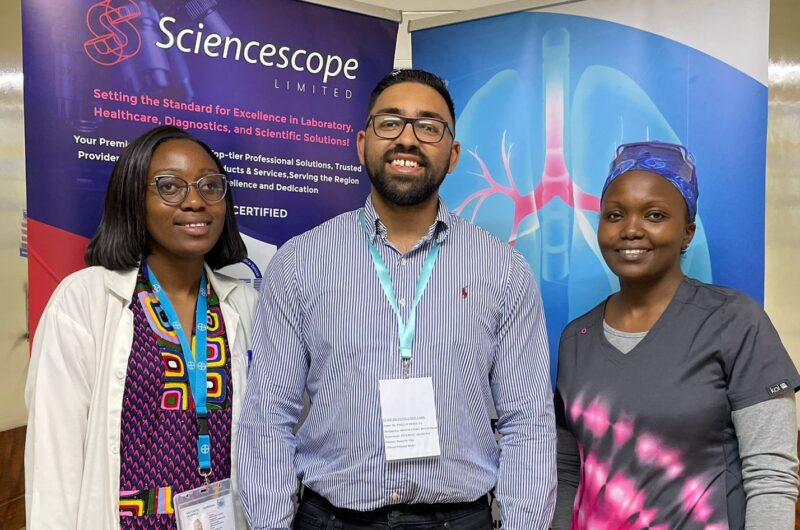By Phillip De Souza
Dr Phillip De Souza is an East of England Global Health Fellow and a respiratory medicine registrar. In partnership with a team in Kenya, his fellowship has seen him set up a project to improve the safety of common pleural procedures like chest drains.
“My first experience in global health was during my medical elective, where I undertook an elective in Bahrain. Here I understood how differences in healthcare and treatment can vary dependent on setting (private vs public) and location. This is often a neglected consideration when working and receiving healthcare in the UK, but one that I wanted to develop a greater understanding of and make a positive contribution in a way that I could.
Before and during the COVID-19 pandemic I carried out research to understand the prevalence and impact of child maltreatment in India, working internationally with a team in India and the UK to conduct a systematic review and meta-analysis. I was able to present these results at an international conference in public health and gained much experience and a key drive to pursue further work into global health.
My speciality is respiratory medicine and within this speciality patients often have respiratory illness, which tend to have a correlation between more severe infections and lower socioeconomic status. There is also a large disparity in the cause and management of respiratory conditions globally, which contributes to differences in outcomes. The combination of my medical speciality and interest in global health provided an opportunity to further explore this.
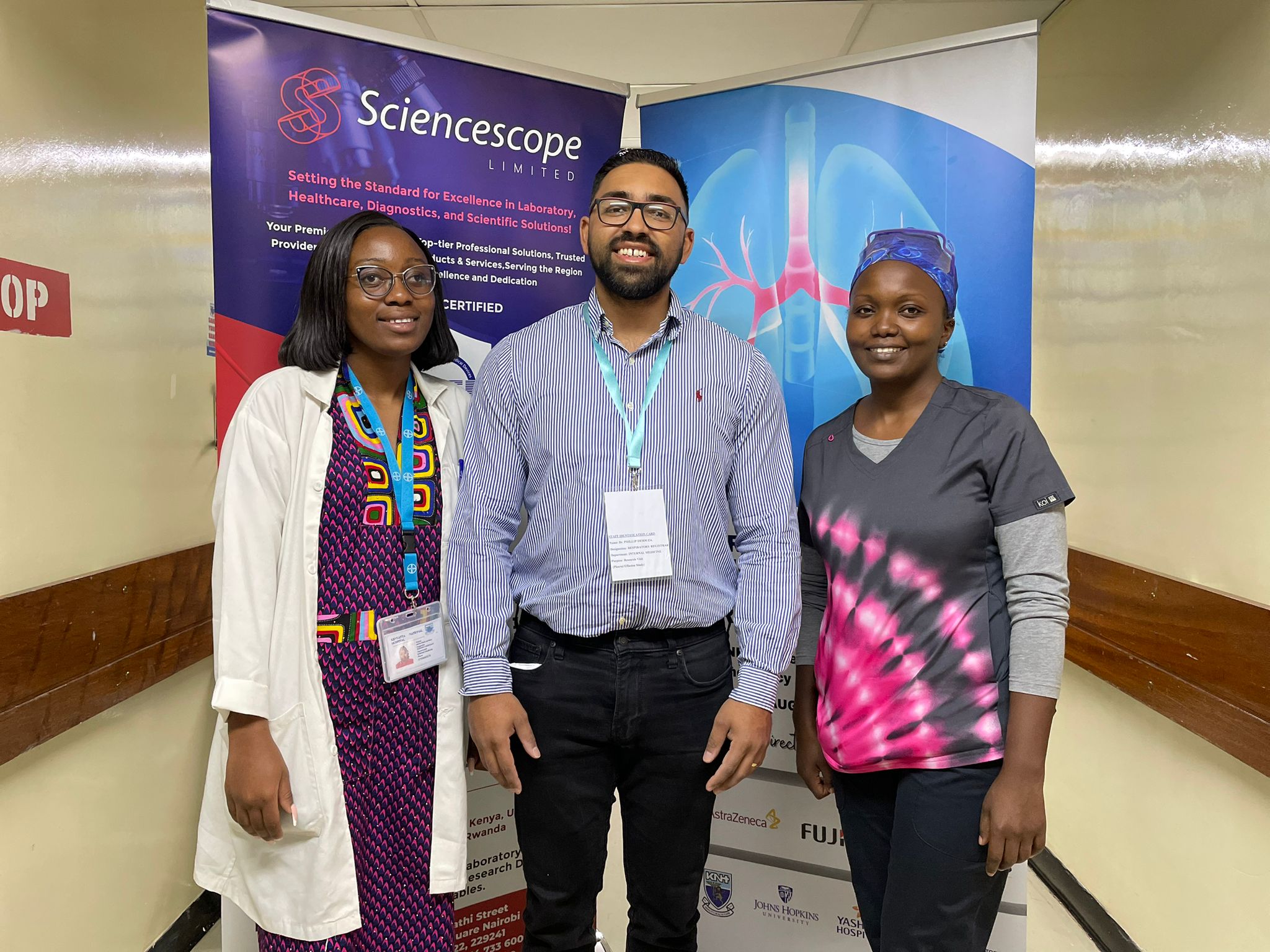
Improving the safety of common procedures for respiratory patients
The focus of the international component of my fellowship has been onimproving the safety of pleural (lung) procedures in Kenya. The main aim was to promote research and learning opportunities from shared and collaborative efforts in the UK, by setting up a collaboration between myself and a team at Kenyatta National Hospital in Nairobi.
Research in Kenya and across Africa is often underrepresented and there is little data detailing the causes and management of diseases that are less common in the UK health system. This project is one way of broadening our understanding, particularly because KNH serves an extremely large population and has an opportunity to contribute a lot of learning. This research and collaboration will hopefully springboard to more research opportunities and wider scope across the world.
My goal was to improve the safety of common procedures like chest drains, mitigate complications, and improve time to management and diagnosis of conditions related to pleural effusions (an unusual amount of fluid around the lung) through the introduction of a safety checklist. The safety checklist is part of national guidance when undertaking any pleural procedure in the UK. It comprises a set of questions that ensures healthcare staff mitigate for potential complications of the procedure.
Learning in person
In August I visited Kenyatta National Hospital, a large tertiary centre in Kenya, to better understand how pleural procedures are undertaken in Kenya given the differences in practice, resources and staff compared to the UK. The causes of pleural procedures also differ between Kenya and UK which is important to understand to tailor the checklist to match further associated complications.
After introducing the safety checklist for pleural procedures, the aim was to extend this to other respiratory conditions as part of a wider scope of practice. In addition, this project aims to promote further research within KNH, where there are a vast number of different respiratory conditions and causes that aren’t well understood.
A key learning point was recognising the reliance on clinical skills when it comes to decision making and management. Given the limited access to resources like CT scans, X-rays or even phlebotomy, many of the decisions are made through clinical expertise.
Another learning point was the importance of the research aspect of the fellowship. It provides an opportunity to broaden our understanding of underrepresented conditions and grow knowledge that will improve the way we treat and manage patients with such conditions in future.
Witnessing first-hand how different the resources are in other countries, how healthcare professionals manage conditions differently, and how I can make a small difference has been awe-inspiring. Being able to meet such amazing teams across the world, contribute to improvements in healthcare and learn about how positive and inspiring healthcare professionals are, in what we perceive to be challenging conditions, is incredibly humbling.
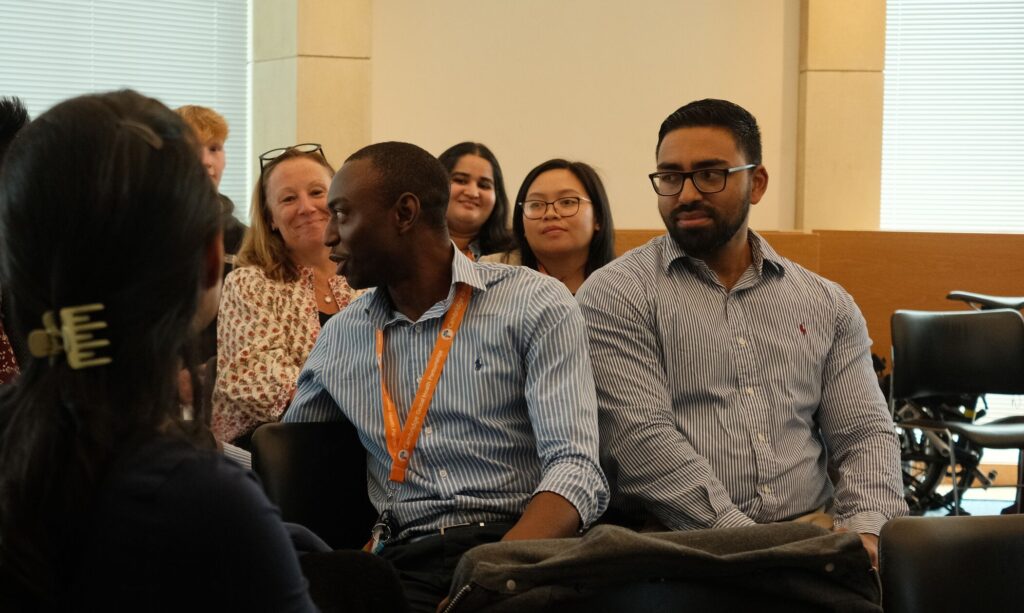
Experiencing a very different healthcare system
The challenges along the way tended to originate from time differences: not just workload differences but physical time differences. This meant there were delays to meetings and appointments and the timelines that we aim for in the UK are not the same in Kenya.
There were several delays to our protocol and the response from the ethics team took longer than anticipated, with many corrections suggested. Perhaps this reflects the seriousness of studies in KNH. The biggest challenge was finding someone to work with internationally and for that I am truly grateful to the KNH team.
An interesting anecdote occurred whilst I was shadowing a resident doctor during a ward round. Before seeing the next patient, he told me that this patient ‘lived’ here. Naively I thought perhaps this was a miscommunication to describe an inpatient. In fact, due to a lack of social care and difficulties in obtaining oxygen for this patient on discharge, the patient had been an inpatient on the ward for ‘years’.
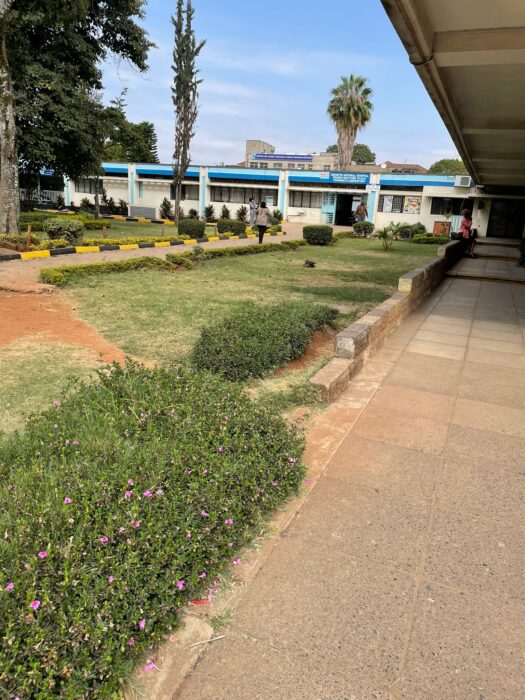
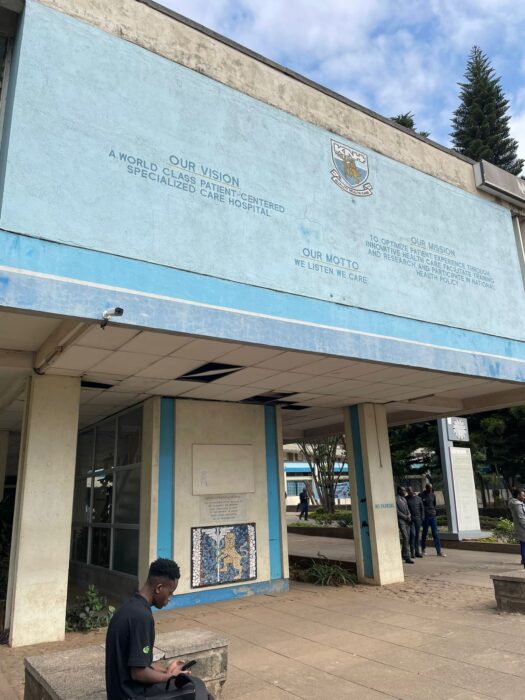
Reflecting on the fellowship
It has been an incredible privilege to have undertaken this fellowship over the past year. I am proud to have set up the project from scratch with little prior experience and no obvious contacts internationally.
It’s been a highlight to work with a fantastic team in Kenya and take steps towards improving the safety of pleural procedures. To do this required understanding of the current gaps in the management of pleural effusions at KNH, and an understanding of resources available to improve it. I managed to set up a protocol independently and then worked with the team collaboratively to tailor this to the requirements at KNH. The plan is to collect data with a view to publication soon.
In addition, the fellowship has allowed me to showcase and spread understanding of CGHP and my work through a presentation at the UK Pleural Society (UKPS).
Lastly, the international visit was a real highlight. Witnessing first-hand how different the resources are in other countries, how healthcare professionals manage conditions differently, and how I can make a small difference has been awe-inspiring. Being able to meet such amazing teams across the world, contribute to improvements in healthcare and learn about how positive and inspiring healthcare professionals are, in what we perceive to be challenging conditions, is incredibly humbling.
Looking ahead
As a researcher, I am now extremely committed to highlighting global health as a priority and considering ways in which we can make positive change going forward. From a personal perspective it has been extremely humbling witnessing patients and healthcare workers persevere in settings with much more limited resources to what we experience. I’m now even keener to work more internationally and will pursue the options to achieving this in future.
I hope that my visit has been worthwhile for learning but also ongoing care and outcomes. Despite this being the natural conclusion to my year as a fellow, it does not conclude my work and the partnership. We hope to maintain a relationship and continue research and publications. Our aim to promote research in Kenya, which in turn will provide more opportunities for KNH.
For me, this is the continuation and personal highlight of my global health journey. I would say I am incredibly privileged to have been given this opportunity and for the CGHP team taking a chance with me given that I was the first respiratory trainee. I feel I have had this chance to build a long-lasting relationship with the team in Kenya and truly hope to find time to visit again and even work there for a longer protracted period.”
Find out more about the East of England Global Health Fellowship or contact us at info@cghp.org.uk
Return to blogs

